Acronym: UNCTAD
Established: 1964
Address: Palais des Nations, Av. de la Paix 8-14, 1211 Geneva 10, Switzerland
Stakeholder group: International and regional organisations
Consumer protection Consumer protection and competition are jointly addressed in the work of UNCTAD
Through its Competition and Consumer Policies Programme, UNCTAD works to assist countries in improving their competition and consumer protection policies. It provides a forum for intergovernmental deliberations on these issues; undertakes research, policy analysis and data collection; and provides technical assistance to developing countries. The Intergovernmental Group of Experts on Consumer Protection Law and Policy monitors the implementation of the UN Guidelines for Consumer Protection, and carries out research and provides technical assistance on consumer protection issues (including in the context of e-commerce and the digital economy). UNCTAD’s work programme on consumer protection is guided, among others, by the UN Conference of Competition and Consumer Protection (held every five years).
Given the significant imbalances in market power in the digital economy, competition policy is becoming increasingly relevant for developing countries. UNCTAD addresses this issue in the Intergovernmental Group of Experts on Competition Law and Policy.
UNCTAD also runs the Research Partnership Platform, aimed at contributing to the development of best practices in the formulation and implementation of competition and consumer protection laws and policies.
UNCTAD serves as co-lead of the UNCTAD is a UN body dedicated to supporting developing countries in accessing the benefits of a globalised economy more fairly and effectively. It provides analysis, facilitates consensus building, and offers technical assistance, thus helping countries use trade, investment, finance, and technology to support inclusive and sustainable development.
UNCTAD also works to facilitate and measure progress towards achieving the sustainable development goals (SDGs), through a wide range of activities in areas such as technology and innovation, trade, investment, environment, transport and logistics, and the digital economy. It places special emphasis on supporting the most vulnerable developing countries, including least developed countries (LDCs), landlocked developing countries (LLDCs), small island developing states (SIDS), and African countries to build resilience to economic shocks and to achieve structural economic transformation.
UNCTAD’s work often results in analyses, statistics, and recommendations that inform national and international policymaking processes, and contribute to promoting economic policies aimed at ending global economic inequalities and generating human-centric sustainable development.
Digital activities
UNCTAD is particularly active in the field of e-commerce, trade, and the digital economy, carrying out a wide range of activities from research and analysis to providing assistance to member states in developing adequate legislative and regulatory frameworks and facilitating international dialogue on the development opportunities and challenges associated with the digital economy.
UNCTAD also works to facilitate and measure progress towards achieving the SDGs, in particular through (but not limited to) its activities in the field of science, technology, and innovation (STI) for development. Consumer protection, gender equality, productive capacity building, and privacy and data protection are other digital policy areas where UNCTAD is active.
Digital policy issues
Data governance
As data has become a key resource in the digital economy, data governance is a fundamental part of the work of UNCTAD. This is illustrated, for example, in the research and analysis work of the Digital Economy Report 2019, which focused on the role of data as the source of value in the digital economy and how it is created and captured and the Digital Economy Report 2021, which analysed cross-border data flows and development. Moreover, some of UNCTAD’s work on e-commerce and digital trade touches specifically on privacy and data protection issues. For instance, the eCommerce and Law Reform work dedicated to supporting developing countries in their efforts to establish adequate legal frameworks for e-commerce also covers data protection and privacy among the key issues addressed. The Global Cyberlaw Trackers offers information on data protection laws in UNCTAD member states.
Also relevant for data governance discussions is UNCTAD’s work on statistics, as the organisation collects and analyses a wide range of data and statistics on issues such as economic trends, international trade, investment, development, and the digital economy. UNCTAD’s statistical capacity development activities help countries enhance their statistical and data infrastructures and often address issues of data governance, such as statistical confidentiality, access to data, and privacy protection. UNCTAD also contributes actively to global work to enhance data governance in statistics and beyond and to develop universal principles to guide the collection, dissemination, use, and storage of data.
UNCTAD makes its data and statistics available as open-source in the UNCTADstat data centre. Statistics underpin UNCTAD’s analytical work and are featured in many publications. The UNCTAD Handbook of Statistics disseminates key messages from UNCTAD’s statistics including infographics and UNCTAD’s SDG Pulse offers statistical information on developments related to the 2030 Agenda for Sustainable Development. In addition, Development and Globalization Facts and Figures publications provide thematic updates on topical issues with the latest number focusing on SIDS. To provide timely information on the global economy and trade, UNCTAD Statistics publishes a weekly Trade and Economy Nowcast.
UNCTAD is also running several projects focused on improving the efficiency of data management for example by developing a plug-and-play system to compile Trade in Services Statistics, its activities in the Digitising Global Maritime Trade project, and by supporting customs operations with the Automated System for Customs Data. UNCTAD’s own statistical activities are governed by the UNCTAD Statistics Quality Assurance Framework, which is aligned with principles governing international statistical activities.
- Digital Economy Report 2019
- Data Protection Regulations and International Data Flows: Implications for Trade and Development (2016)
- UNCTAD Statistics Quality Assurance Framework
- UNCTADstat Data Centre
- UNCTAD’s SDG Pulse
- UNCTAD Handbook of Statistics
- Trade and Economy Nowcast
- Development and Globalization Facts and Figures
E-commerce and trade
UNCTAD’s work programme on e-commerce and the digital economy (ECDE Programme), encompasses several research and analysis, consensus-building, and technical assistance activities, as follows:
Research and analysis
UNCTAD conducts research and analysis on e-commerce and the digital economy and their implications for trade and development. These are mainly presented in its flagship publication, the Digital Economy Report (known as the Information Economy Report until 2017), and in its Technical Notes on ICT for Development. The Technology and Innovation Report, another flagship publication, highlights the need to build science, technology, and innovation capabilities as prerequisites to enabling developing countries and LDCs to adopt and adapt frontier technologies, including digital technologies.
Consensus building on e-commerce and digital economy policies
UNCTAD’s Intergovernmental Group of Experts on E-commerce and the Digital Economy meets regularly to discuss ways to strengthen the development dimension of e-commerce and the digital economy. The group’s meetings are usually held in conjunction with UNCTAD eWeek an annual event hosted by UNCTAD featuring discussions on development opportunities and challenges associated with the digital economy.
UNCTAD also serves as a knowledge partner to the deliberations of the G20 Digital Economy Working Group on Data Free Flow with Trust and Cross-border Data Flows.
Under the auspices of the UN Commission on Science and Technology for Development (CSTD), UNCTAD provides substantive work on the follow-up to the World Summit on the Information Society (WSIS) – a unique two-phase UN summit that was initiated to create an evolving multistakeholder platform to address the issues raised by information and communications technologies (ICTs) through a structured and inclusive approach at the national, regional, and international levels.
To that end, the CSTD:
- Reviews and assesses progress at the international and regional levels in the implementation of action lines, recommendations, and commitments contained in the outcome documents of the Summit.
- Shares best and effective practices and lessons learned and identifies obstacles and constraints encountered, and actions and initiatives to overcome them alongside important measures for further implementation of the Summit outcomes.
- Promotes dialogue and fosters partnerships, in coordination with other appropriate UN funds, programmes and specialised agencies, to contribute to the attainment of the Summit.
- Monitors objectives and the implementation of its outcomes and the use of ICTs for development and the achievement of internationally agreed development goals, with the participation of governments, the private sector, civil society, the UN, and other international organisations in accordance with their different roles and responsibilities.
E-Commerce assessments and strategy formulation
The eTrade Readiness Assessments (eT Readies) assist LDCs and other developing countries in understanding their e-commerce readiness in key policy areas to better engage in and benefit from e-commerce. The assessments provide recommendations to overcome identified barriers and bottlenecks to growth and enjoying the benefits of digital trade.
UNCTAD’s work on ICT policy reviews and national strategies involves technical assistance, advisory services, diagnostics, and strategy development on e-commerce, and national ICT planning at the request of governments. Through an analysis of the infrastructural, policy, regulatory, institutional, operational, and socio-economic landscape, the reviews help governments to overcome weaknesses and bureaucratic barriers, leverage strengths and opportunities, and put in place relevant strategies.
Legal frameworks for e-commerce
UNCTAD’s e-commerce and law reform work helps to develop an understanding of the legal issues underpinning e-commerce through a series of capacity-building workshops for policymakers at the national and regional levels. Concrete actions include assistance in establishing domestic and regional legal regimes to enhance trust in online transactions, regional studies on cyber laws harmonisation, and the global mapping of e-commerce legislation through its Global Cyberlaw Tracker.
Measuring the information economy
UNCTAD’s work on measuring the information economy includes statistical data collection and the development of methodology, as well as linking statistics and policy through the Working Group on Measuring E-commerce and the Digital Economy, established by the Intergovernmental Group of Experts on E-Commerce and the Digital Economy. Figures are published in the biennial Digital Economy Report and the UNCTADstat Data Centre. Technical cooperation here aims to strengthen the capacity of national statistical systems to produce better, more reliable, and internationally comparable statistics on the following issues: ICT use by enterprises, size and composition of the ICT sector, and e-commerce and international trade in ICT-enabled services.
Smart partnerships through eTrade for all
The eTrade for all initiative (eT4a) is a global collaborative effort of 35 partners to scale up cooperation, transparency, and aid efficiency towards more inclusive e-commerce. Its main tool is an online platform (etradeforall.org), a knowledge-sharing and information hub that facilitates access to a wide range of information and resources on e-commerce and the digital economy. It offers a gateway for matching the suppliers of technical assistance with those in need. Beneficiaries can connect with potential partners, and learn about trends, best practices, up-to-date e-commerce indicators, and upcoming events all in one place. The initiative also acts as a catalyst of partnership among its members for increased synergies. This collaboration has concretely translated into the participation of several eT4a partners as key contributors to the various UNCTAD e Week organised by UNCTAD and in the conduct and review of eTrade Readiness Assessments.
Market access and rules of origin for least developed countries
LDCs are granted preferential tariff treatment in the markets of developed and developing countries under several schemes and arrangements. Since its inception, UNCTAD has assisted governments in developing preferential rules of origin (RoO). UNCTAD assists governments and regional economic communities, as well as the AfCFTA Secretariat, in negotiating and drafting their RoO. Most recently, UNCTAD’s technical assistance has focused on the implementation of the World Trade Organization’s (WTO’s) 2005 Hong Kong decision on Duty-free, Quota-free (DFQF) market access, and understanding and drafting RoO.
UNCTAD has undertaken extensive research on DFQF and RoO. The UNCTAD Database on the African Continental Free Trade Area (AfCFTA) provides information on trade statistics, rules of origin, and tariff offers under AfCFTA at the Harmonized Commodity Description and Coding System (HS) subheading (6-digit) level
The UNCTAD Generalized System of Preferences (GSP) utilisation database provides information on the utilisation of the GSP schemes as well as other trade preferences granted to developing countries and LDCs under GSP, DFQF arrangements, and trade preferences under reciprocal free trade agreements (FTAs).
- Digital Economy Report 2019 – Value Creation and Capture: Implications for Developing Countries (2019)
- Towards E-commerce Legal Harmonization in the Caribbean (2018)
- eTrade Readiness Assessments for Least Developed Countries
- Handbook on Duty-Free and Quota-Free Market Access and Rules of Origin for Least Developed Countries (Part I)
- Handbook on Duty-Free and Quota Free Market Access and Rules of Origin for Least Developed Countries (Part II)
- Handbook on Preferential Market Access for ASEAN Least Developed Countries (Part III)
- Compendium of Technical Notes Prepared for the LeastDdeveloped Countries WTO Group on Preferential Rules of Origin
- Getting to Better Rules of Origin for LDCs Using Utilization Rates
- eCommerce and Law Reform
- Global Cyberlaw Tracker
- eTrade for all initiative
- eTrade for Women programme
- Rapid eTrade readiness assessments
- ICT policy reviews
- Measuring e-commerce and the digital economy
- Intergovernmental Group of Experts on E-commerce and the Digital Economy
- Database on the African Continental Free Trade Area (AfCFTA)
- Database on the Generalized System of Preferences (GSP),
- The Digital Economy Report counts on collaboration with organisations such as ITU, ITC, WTO, the World Bank, and UN regional commissions.
- UNCTAD partners with various organisations in the context of the eT4a initiatives. Examples include ILO, WIPO, the World Economic Forum, UN regional commissions, etc.
- Compendium of technical notes II prepared for the LDC WTO Group on preferential rules of origin
- The Utilization of Trade Preferences by COMESA Member States
Consumer protection Consumer protection and competition are jointly addressed in the work of UNCTAD
Through its Competition and Consumer Policies Programme, UNCTAD works to assist countries in improving their competition and consumer protection policies. It provides a forum for intergovernmental deliberations on these issues; undertakes research, policy analysis and data collection; and provides technical assistance to developing countries. The Intergovernmental Group of Experts on Consumer Protection Law and Policy monitors the implementation of the UN Guidelines for Consumer Protection, and carries out research and provides technical assistance on consumer protection issues (including in the context of e-commerce and the digital economy). UNCTAD’s work programme on consumer protection is guided, among others, by the UN Conference of Competition and Consumer Protection (held every five years).
Given the significant imbalances in market power in the digital economy, competition policy is becoming increasingly relevant for developing countries. UNCTAD addresses this issue in the Intergovernmental Group of Experts on Competition Law and Policy.
UNCTAD also runs the Research Partnership Platform, aimed at contributing to the development of best practices in the formulation and implementation of competition and consumer protection laws and policies.








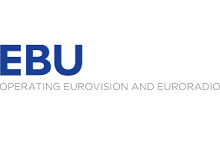
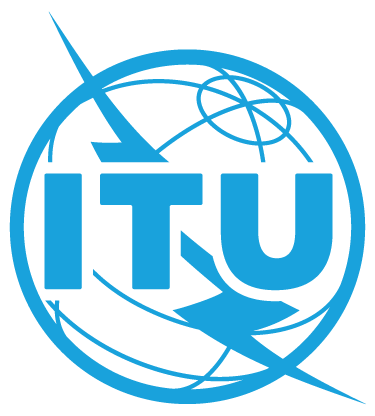
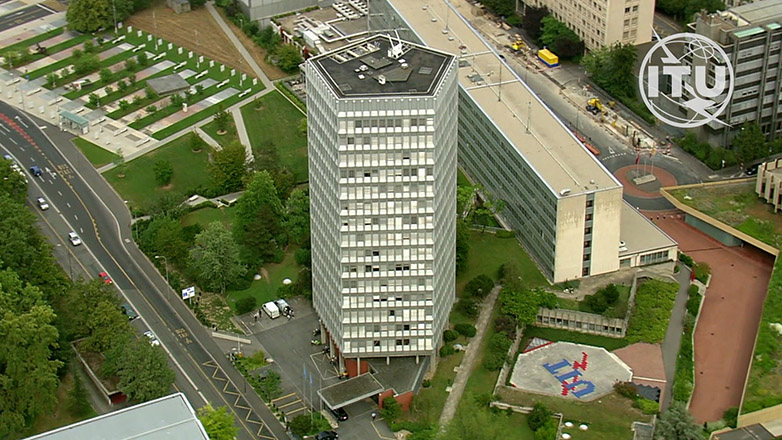
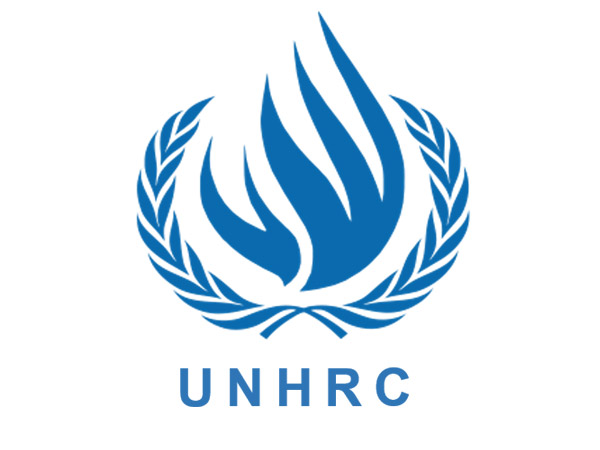
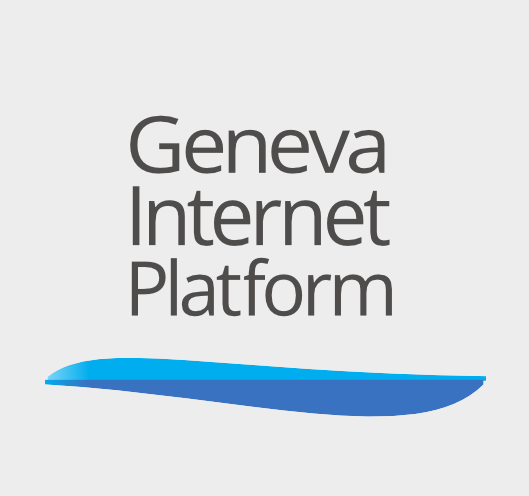
Social medial channelstest test
Facebook @WorldTradeOrganization
Flickr @WorldTradeOrganization
Instagram @worldtradeorganization
Twitter @wto
YouTube @WorldTradeOrganization